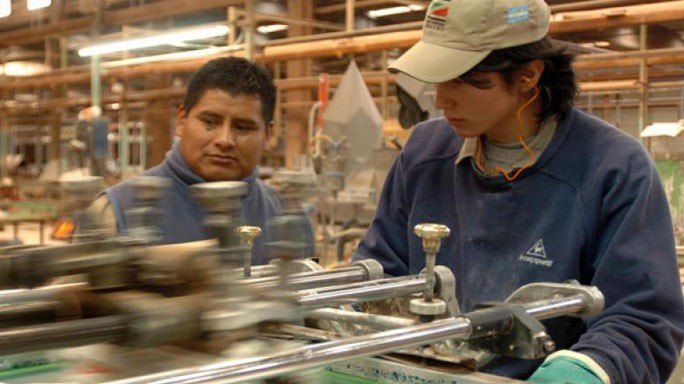The Wage Council agreed yesterday to increase the minimum wage by 28.5 percent, pushing it from 4,716 pesos to 5,588 pesos (18.5 percent) in August and then to 6,060 pesos in January 2016 (10 percent).
The increase is in line with what unions were expecting and most sectors agreed to in their seperate wage negotiations. Thanks to the hike, Argentina’s minimum wage will be significantly higher than other countries in the region. In August, the minimum wage will remain equivalent to US$614 at the official rate and US$370 using the “blue” dollar exchange rate.
At the official rate, that is higher than Uruguay (US$369), Chile (US$378) and Brazil (US$250).
Next year — and assuming exchange rates remain steady — the country’s minimum wage will reach US$665 with today’s official exchange rate and US$404 with today’s “blue” dollar exchange rate.
President Cristina Fernández de Kirchner announced the new figure last night after the conclusion of the annual Wage Council, which gathers government officials, union leaders and business sector representatives.
Union leaders such as Antonio Caló (CGT) and Hugo Yasky (CTA) and business leaders such as UIA vice-president Daniel Funes de Rioja took part in the meeting alongside Economy Minister Axel Kicillof and Labour Minister Carlos Tomada.
“This has no precedent in the world. We have been meeting over the last 12 years to set the minimum wage and the intervention of the government was never necessary as unions and business chambers always reached a deal,” the president said. “I like attending these meetings because it shows how important the minimum wage is for us.”
CFK pointed out that the government has kept the economy growing thanks to higher domestic consumption and despite a global economic crisis that began in 2008. At the same time, she said Argentina is one of the countries in which prices have dropped the most and backed the government’s trade policies, questioned by the World Trade Organization for breaking global trade rules.
“We were able to maintain levels of consumption in the domestic market. We back that policy as demand comes first and supply comes afterward. Nobody invests in a country without certainties,” CFK said. “All despite a global economic crisis that has been going on for seven years. The world never recovered and our main partners are growing less or even not growing at all.”
The president also warned about the many problems faced by regional economies because of the global drop in commodities prices and said the government is working with each sector individually to solve their problems. At the same time, she asked business leaders to keep prices down as that will lead to a higher demand of their goods.
Buenos Aires Herald





